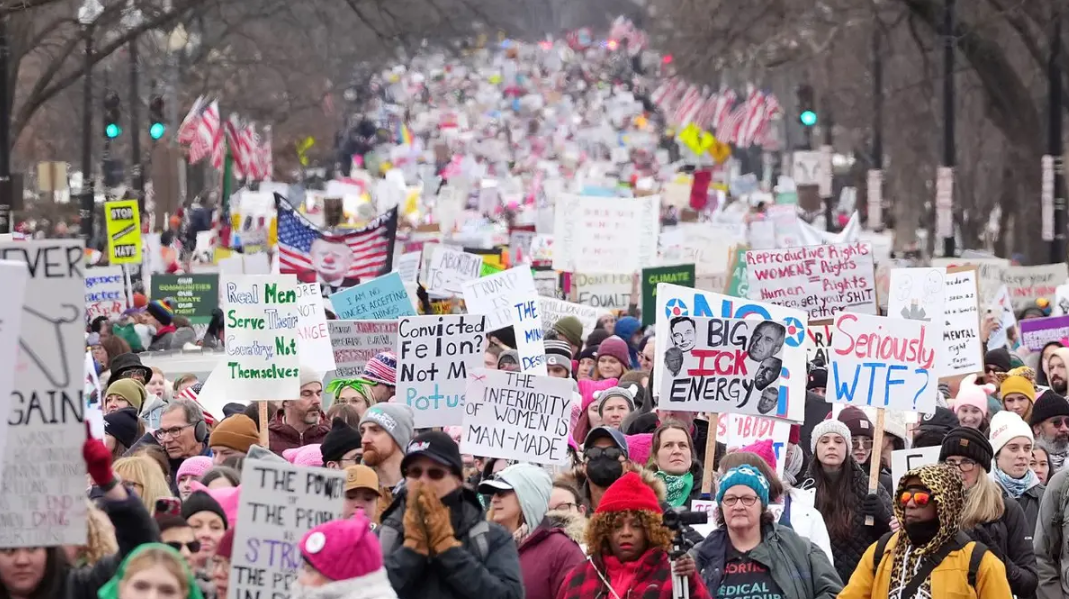America Reacts: Protests Erupt as Trump Moves to Slash Climate and Human Rights Funding
America reacts strongly as protests erupt across the country in response to former President Donald Trump’s controversial proposal to slash funding for climate initiatives and human rights programs. From coast to coast, thousands of citizens have taken to the streets, demanding that lawmakers reject what many see as a dangerous rollback of environmental protections and civil liberties.
Slash Climate and Human Rights Funding, What Sparked the Protests?
The protests began shortly after Trump announced a budget proposal that included significant reductions in federal funding for climate science, clean energy innovation, environmental justice programs, and key human rights efforts. Advocacy groups argue that these cuts threaten not only environmental progress but also vulnerable communities relying on federal protections.
Table: Key Areas Affected by Trump’s Proposed Budget Cuts
| Program Area | Current Annual Budget (USD) | Proposed Cut (%) | Impact Highlight |
|---|---|---|---|
| Climate Research (NOAA) | $1.2 Billion | -45% | Potential layoffs, delayed climate data |
| Clean Energy Programs | $4.5 Billion | -38% | Halt on solar and wind project funding |
| EPA Environmental Justice | $325 Million | -60% | Less support for underserved communities |
| International Human Rights (State Dept.) | $1.1 Billion | -50% | Reduction in global democracy support |
| Civil Rights Division (DOJ) | $165 Million | -40% | Cuts in investigation resources |
Cities Leading the Protests
The largest rallies were held in Washington D.C., New York City, Los Angeles, and Chicago. Protesters included scientists, climate activists, civil rights groups, students, and concerned citizens. Many carried signs reading “Protect Our Future,” “Climate Justice Now,” and “Human Rights Are Not Optional.”
In Boulder, Colorado—a hub for environmental research—over 1,000 climate scientists marched alongside students. Meanwhile, in Atlanta, civil rights leaders held vigils highlighting the proposed rollback of federal protections for minority communities.
What Are Protesters Demanding?
Protest organizers are calling for three major actions from Congress:
- Full restoration of funding for climate research, clean energy development, and human rights programs.
- Passage of legislative protections to prevent future executive cuts to these programs.
- A national climate and rights accountability office to monitor federal actions in real-time.
Reactions From Political Leaders
Democratic lawmakers have denounced the budget as “an assault on progress.” Senator Bernie Sanders stated, “We cannot allow billionaires to profit while stripping the environment and basic human dignity from the American people.”
Even some moderate Republicans have expressed concern. Senator Lisa Murkowski (R-Alaska) noted the importance of Arctic climate monitoring for her state and urged a reconsideration of the NOAA budget cuts.
Trump’s Response to the Backlash
In a Truth Social post, Trump responded to the protests, stating:
“We need to focus on making America strong again. Wasting billions on fake climate science and foreign rights programs doesn’t serve U.S. interests.”
This statement only intensified backlash, with many activists labeling the message as dismissive and lacking empathy.
What This Means for the USA Going Forward
The U.S. is at a crossroads. With climate change accelerating and civil rights challenges still present, cuts to these programs could create long-lasting setbacks. Economists warn that short-term savings may lead to higher costs in disaster recovery, healthcare, and social justice litigation.
According to the Union of Concerned Scientists, for every $1 spent on climate preparedness, the federal government saves $6 in disaster response. Similarly, civil rights organizations warn that failing to address early signs of injustice could result in long-term social instability.
Conclusion
The protests over Trump’s proposed budget cuts are not just political theatre—they reflect deep national concerns about the future of environmental security and human dignity. With thousands of Americans mobilizing across cities, this movement could become a pivotal moment in 2025’s political landscape.
The real question now is whether Congress will act or allow these programs to wither under executive policy changes. Either way, the outcome will shape America’s environmental and human rights legacy for years to come.
[USnewsSphere.com / reu]





